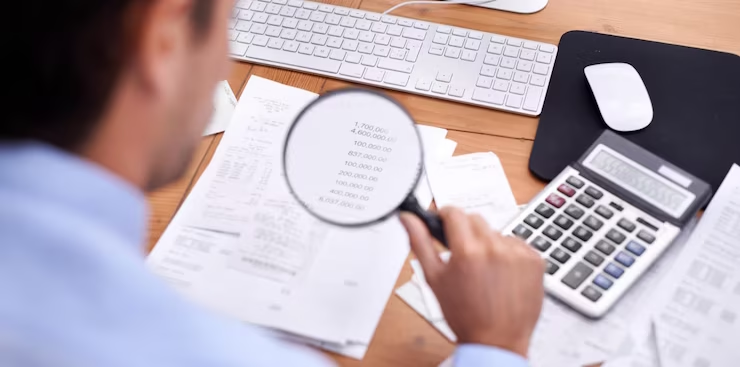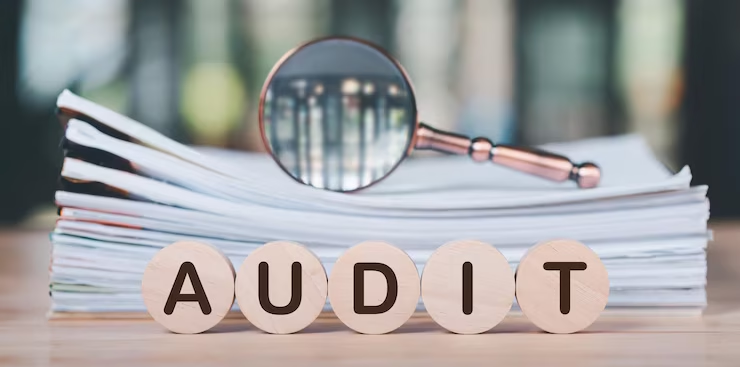Financial transparency and accuracy are the bedrock of trust in any business or financial operation. Forensic accounting audits are an essential tool for uncovering discrepancies, identifying fraud, and ensuring compliance. As businesses grow and financial landscapes evolve, the need for professional forensic accounting services becomes paramount to mitigate risks and safeguard assets.
In today’s complex business environment, both individuals and organizations face mounting pressure to maintain financial integrity. Whether dealing with internal fraud, financial disputes, or legal investigations, forensic accounting plays a pivotal role. By conducting detailed examinations of financial records and transactions, forensic accountants can uncover hidden issues and provide the necessary evidence for litigation or financial rectification.
In this blog, we will explore what forensic accounting audits are, why they are crucial for businesses and individuals, and how they can be leveraged to maintain financial security and legal compliance.
What is Forensic Accounting?
Forensic accounting is the application of accounting skills and investigative techniques to uncover financial discrepancies and fraud. Forensic accountants utilize their expertise to examine financial records in detail, trace irregularities, and report findings in a clear, legally admissible manner. Their work often serves as a foundation for legal proceedings, such as fraud investigations, divorce settlements, insurance claims, or business disputes.
Unlike traditional accounting, which focuses on maintaining financial records and preparing reports, forensic accounting delves deeper into transactions to detect irregularities or fraudulent activities. The process involves analyzing financial data, identifying red flags, and reconstructing financial history to uncover hidden assets or illicit activities.
Forensic accounting audits are designed to identify financial misconduct, errors, or fraud that could harm a business or individual. These audits are typically triggered by suspicions of financial discrepancies, legal investigations, or compliance checks.
The Role of Forensic Accounting Audits
Forensic accounting audits serve several critical functions within an organization or legal context. Here are some of the key roles they play:
- Fraud Detection and Prevention
Fraudulent activities, such as embezzlement, financial misreporting, or money laundering, can wreak havoc on businesses and individuals. Forensic accountants use their skills to detect fraud by analyzing financial statements, transactions, and records. They look for unusual patterns, discrepancies, and signs of manipulation that could indicate fraud.
For example, a forensic accountant might identify unexplained discrepancies in bank statements, unusual vendor payments, or suspicious cash transactions. Once potential fraud is identified, forensic accountants can help uncover the extent of the wrongdoing and provide evidence for legal proceedings or internal investigations.
- Legal Support in Financial Disputes
Forensic accounting audits are often crucial in legal cases that involve financial disputes. Whether it’s a breach of contract, a dispute over financial settlements, or the division of assets during a divorce, forensic accountants can provide the necessary evidence to support claims or defense. Their expertise in financial analysis allows them to present a clear and concise picture of the financial situation in question.
In divorce cases, for example, forensic accountants might investigate hidden assets or uncover discrepancies in financial declarations. Their findings can influence settlement negotiations or court decisions.
- Identifying Financial Irregularities
In some cases, a business might suspect that something is wrong with its financial operations but cannot pinpoint the exact cause. A forensic accounting audit can provide a thorough review of financial records to uncover any irregularities or mistakes. This audit might reveal issues like misclassification of expenses, improper accounting practices, or inaccuracies in financial statements.
A forensic accountant will typically review accounting ledgers, bank records, tax filings, and other financial documentation to identify any discrepancies that could pose a risk to the business. Identifying such irregularities early can help mitigate potential financial damage and prevent further complications.
- Regulatory Compliance
Forensic accountants are essential in ensuring that businesses comply with financial regulations, tax laws, and industry standards. An audit may be required to verify that a company is adhering to financial reporting standards, paying taxes appropriately, and following best practices in accounting.
Regulatory agencies and financial authorities may require forensic audits as part of a compliance review. Forensic accountants ensure that a company’s financial activities are in line with legal requirements, helping to avoid fines, penalties, or reputational damage.
Key Benefits of Forensic Accounting Audits
Forensic accounting audits provide several advantages for businesses, individuals, and legal professionals. Below are some of the primary benefits:
- Detects Fraud and Mismanagement
One of the most significant benefits of a forensic accounting audit is its ability to uncover fraudulent activities or mismanagement within an organization. Fraud can take many forms, from small-scale embezzlement to large-scale financial manipulations. Forensic accountants are trained to identify these activities, which might not be evident through traditional accounting methods.
By identifying fraudulent transactions and uncovering the perpetrators, forensic accounting audits protect businesses from financial losses and reputational harm.
- Provides Legal Evidence
In cases of fraud or financial disputes, forensic accounting audits provide critical legal evidence. The detailed reports generated by forensic accountants are often admissible in court and can be used to support claims or defense in legal proceedings.
Forensic accountants document their findings in a clear and objective manner, ensuring that their work holds up in legal contexts. This makes forensic accounting an indispensable tool for legal professionals, business owners, and individuals involved in financial disputes.
- Prevents Future Financial Risks
By conducting a forensic accounting audit, businesses can identify weaknesses or vulnerabilities in their financial systems and operations. This proactive approach helps businesses prevent future financial risks, such as fraud, regulatory violations, or accounting errors.
Forensic accountants can also provide recommendations for improving financial controls, processes, and policies. These measures can help safeguard the business’s financial integrity and protect it from future risks.
- Strengthens Financial Transparency
Forensic accounting audits enhance transparency by providing a detailed and objective review of financial operations. This transparency builds trust among stakeholders, investors, and regulatory authorities. Businesses that maintain a transparent financial record are better positioned to attract investment, secure loans, and maintain positive relationships with their partners and clients.
- Assists with Business Valuation
Forensic accounting audits play a vital role in business valuation, particularly in mergers and acquisitions, litigation, or divorce cases. By thoroughly analyzing financial statements and transactions, forensic accountants can determine the true value of a business, factoring in any hidden liabilities or assets.
This process ensures that the business’s valuation is accurate and reflects its true financial position. Accurate valuations are crucial for negotiations and ensuring that both parties receive a fair deal in business transactions.
When Should You Consider a Forensic Accounting Audit?
There are several situations where a forensic accounting audit is beneficial. Here are some common scenarios:
- Suspected Fraud or Misappropriation
If a business or individual suspects that fraud or misappropriation is occurring, a forensic accounting audit is essential to uncover the truth. Whether it’s an employee embezzling funds or a partner concealing assets, forensic accountants can trace the transactions and identify the perpetrators.
- Legal Investigations and Litigation
In legal cases involving financial disputes, a forensic accounting audit can provide crucial evidence. Whether it’s a contract dispute, divorce settlement, or asset division, forensic accountants can investigate the financial history and provide a clear picture of the situation.
- Financial Discrepancies and Irregularities
When there are discrepancies in financial reports, a forensic accounting audit can uncover the cause of the issue. Whether it’s misclassified transactions, incorrect bookkeeping, or fraudulent activity, forensic accountants provide the necessary insights to resolve the issue.
- Compliance with Regulations
Businesses are often required to undergo forensic accounting audits to ensure they are complying with industry regulations and tax laws. These audits help businesses avoid penalties and ensure that their financial practices align with legal requirements.
- Internal Control Improvements
Forensic accounting audits can identify weaknesses in a business’s internal controls and financial systems. This information is vital for improving financial policies, ensuring accuracy, and preventing future risks.
How Forensic Accounting Audits Can Benefit Your Business
As a business owner, safeguarding your assets and ensuring financial accuracy should be a priority. Forensic accounting audits provide you with a detailed and objective analysis of your financial records, helping to uncover potential issues before they become major problems. This can protect your business from fraud, legal disputes, and financial mismanagement.
Furthermore, forensic accounting audits can help you improve your internal controls, enhance financial transparency, and strengthen your business’s overall financial health. By investing in forensic accounting audits, you are investing in the long-term success and integrity of your business.
Conclusion
Forensic accounting audits are an invaluable tool for ensuring financial integrity, uncovering fraud, and providing legal support in financial disputes. By examining financial records with a detailed and investigative approach, forensic accountants can uncover hidden risks, prevent future problems, and provide critical evidence for legal proceedings.
Securing your financial integrity today with professional forensic accounting audit services is crucial, whether you’re a business owner looking to safeguard your assets or a legal professional seeking expert insights. At Mortgage Audits Online, we are here to help you navigate the complexities of forensic accounting. Contact us today at (877)-399-2995 or visit Mortgage Audits Online to learn more. Secure your financial future with confidence!







